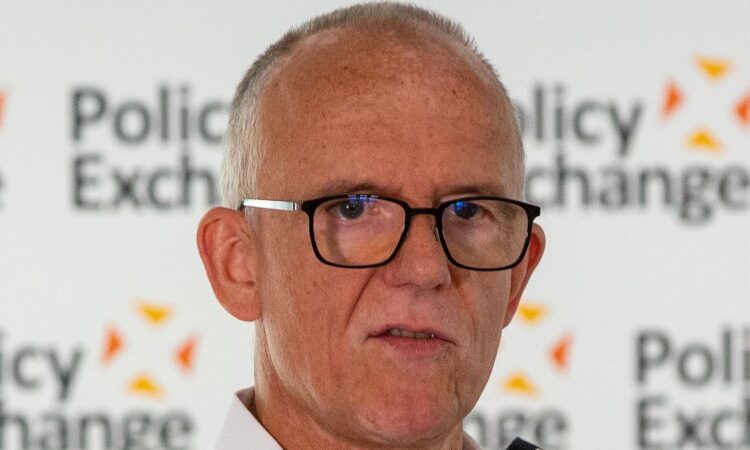Met Police sets up 40-strong team dedicated to crypto investigations over fears digital currencies play an ‘endemic role’ in organised crime

By Rory Tingle, Home Affairs Correspondent For Mailonline
09:48 18 Oct 2023, updated 01:46 19 Oct 2023
The Met Police has set up a 40-strong team dedicated to crypto investigations amid fears digital currencies play an ‘endemic role’ in organised crime.
The specialist squad began operating in May and now has 19 current active criminal probes after receiving 74 referrals, the London force said.
Cryptocurrencies such as Bitcoin have long been favoured by criminal gangs as a way to hide assets and easily transfer wealth across borders.
They are also targets for scammers, with the value of UK crypto fraud reports increasing by 41 per cent in the past year to a record £306million, according to law firm RPC.
‘Crypto was once considered a niche within criminal enterprises, but there has been growing evidence that is no longer the case,’ Detective Inspector Geoff Donoghue, from the Met’s crypto investigations team, told the Financial Times.
‘The evidence is suggesting an endemic role of cryptocurrency in organised crime.
‘Drugs, guns, girls and workers… there has been growing evidence that there has been the emerging use of crypto within those fields as well.’
Earlier this month, Israeli police blocked cryptocurrency accounts used to gather donations for Hamas.
Blockchain researchers TRM Labs said crypto fundraising has previously increased following violent attacks by the terror group.
After fighting in May 2021, Hamas-controlled crypto addresses received more than $400,000 (£328,000).
Gangs in the UK have been enthusiastic users of crypto.
In August, eleven people were jailed in Cardiff after turning an estimated 40 kilograms of cocaine into £3million worth of cryptocurrency.
And in January, Preston Crown Court heard how another group of criminals made so much money from a £21million Bitcoin scam they began handing out £5,000 gift cards in the street.
The price of Bitcoin crashed in November 2021 after rising to dizzying heights during the pandemic. It is up by nearly 40 per cent this year so far, but still far below its previous highs.
However, Mat Stanley, a detective sergeant in the Met’s cyber crime unit, said criminals had largely shrugged off the collapse in crypto prices because ‘if you’re buying £100 of drugs, you don’t care if that costs one bitcoin or 0.1 bitcoin’.
Trading of cryptocurrencies such as bitcoin is largely unregulated in the UK and has come under fire for its volatility and links to addictive behaviour.
In February, the government revealed plans to regulate crypto in a similar manner to traditional financial assets like stocks and bonds.
In response, MPs on the Treasury Committee said crypto trading should be treated as a form of gambling rather than a financial service.
The cross-party committee argues that this will avoid the so-called ‘halo’ effect, which leads consumers to believe it is completely safe and protected, and also reflect the nature of crypto trading, which is more akin to online betting.
In the US, regulators have sued industry giants Coinbase and Binance, while FTX founder Sam Bankman-Fried is on trial in New York for several charges including fraud.




